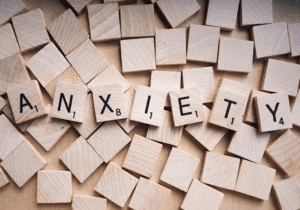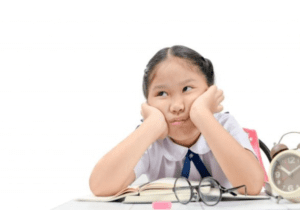When Anger Visits: A Parent’s Guide to Calming Big Emotions
This article has been researched and written by Hacer Subasi. AI has not been used in producing this article.
Anger is a natural and necessary emotion—but for children, it can feel overwhelming and hard to express. This short guide is written for you, dear parents, with simple language and playful strategies you can read with your child or to your child. The goal is to help them recognise their emotions, feel understood, and discover safe and creative ways to express what’s going on inside.
Did you know? Sometimes, out of nowhere, a big feeling might come and knock on the door of your heart. One of those big feelings could be anger. And guess what? That is okay. If there are people around you who ignore you, move away from you, or even punish you when you are angry, maybe you can gently let them know that ‘anger is a natural emotion’. It is something all of us feel sometimes.
The first thing to remember is: It is totally okay to feel angry. There’s nothing wrong with it—it is just your heart’s way of saying something important.
The second thing is this: When anger knocks on your heart’s door, you can be kind and invite it in. That is very caring and welcoming thing to do. Otherwise, you might feel so mad your face gets hot, your fists clench, or your tummy feels funny. But what matters is what you do with that anger. Here are some fun and helpful ways to calm down when you feel like a volcano ready to erupt!
1. Cookie Breathing (Inspired by Liana Lowenstein)
Imagine you’re holding your favourite warm, yummy cookie. First, take a deep breath in to smell the cookie (sniff in through your nose)… now blow on it to cool it down (slowly blow out through your mouth). Try it three times. Doesn’t that feel nice?
2. Draw It Out
Grab your crayons or markers and draw what your anger feels like. Maybe it’s a red tornado or a spiky ball! Putting your feelings on paper helps them come out safely.
3. Chill-Out Spot
Create your own “calm-down corner” with soft pillows, toys, or a fidget toy. When you’re angry, you can go there to feel safe and cool off.
4. Use Your Words
Try saying, “I feel angry because…” or “I don’t like when…” Talking about your feelings helps grownups understand you better.
5. Try a Feelings Thermometer
Think of your feelings like a thermometer. Are you just a little warm (a bit annoyed)? Or boiling hot (super angry)? Noticing your feelings helps you stop before you explode!
6. Be Like a Turtle
When you feel super mad, pull back like a turtle! Close your eyes, take a deep breath, and wait before you act. Then, come out slowly when you feel calmer.
7. Ask for a Hug
Sometimes, just a hug from someone who loves you can make the angry feeling melt away—like ice cream in the sun.
Whether you’re looking for a bedtime conversation starter or a tool during tough moments, these gentle tips will guide you
and your little one toward calmer, more connected experiences.
The Future of Depression Treatment
According to the World Health Organization (WHO), depression impacts more than 264 million people globally. Once diagnosed, depression treatment can be by medications, psychotherapy, or a combination of the two. While…
How to Talk to Your Therapist When You Have Social Anxiety
Social anxiety disorder (SAD), also called a social phobia, is characterized by intense fear or anxiety of being negatively evaluated, judged, or rejected in a social situation. Individuals with social anxiety often …
Managing Depression During Social Isolation
The outbreak of the global coronavirus pandemic is stressful for many people. Since the World Health Organization (WHO) declared the COVID-19 outbreak a global pandemic, regions across the world have mandated quaran…
What are Cognitive Behavioral Therapists?
Cognitive behavioral therapy (CBT) is a common type of talk therapy (psychotherapy) that has been demonstrated effective for a range of mental health struggles including anxiety disorders, depression, substance abuse …
Managing COVID-19 – Related Anxiety
The recent increase of COVID-19 cases in Europe and in the rest of the world has seen a great increase of strong emotions, such as overwhelming fear and worry, in our community. Despite the fact that the infection has…
What to Expect at Your First Family Therapy Session
Are you feeling a bit nervous about your first family therapy session? It’s very common to feel a bit apprehensive before starting any type of therapy. Therapy involves sharing personal information and intimate detail…
What do you really know about ADHD?
ADHD, or attention deficit disorder, is a commonly known mental health disorder and can be easily described by teasing apart its acronym. Most of us have been made aware of the condition through social media, advertis…
Taking Your First Steps to Seeing a Therapist
More often than not, the first step people take towards overcoming their mental illnesses, is making the decision to talk to someone about it, whether it’s a friend or a professional. It doesn’t help that our cultural…
The Benefits of Family Therapy
Family plays an essential role in our emotional, spiritual, and intellectual lives. Over the past few decades, the nuclear family has evolved and changed. Despite these changes to what a particular family unit include…
- « Previous
- 1
- …
- 3
- 4
- 5










